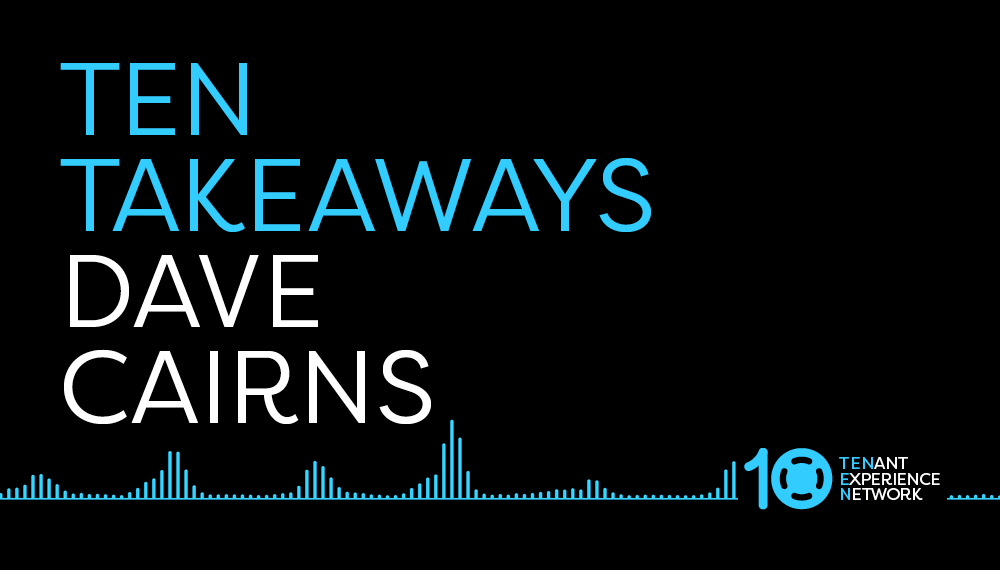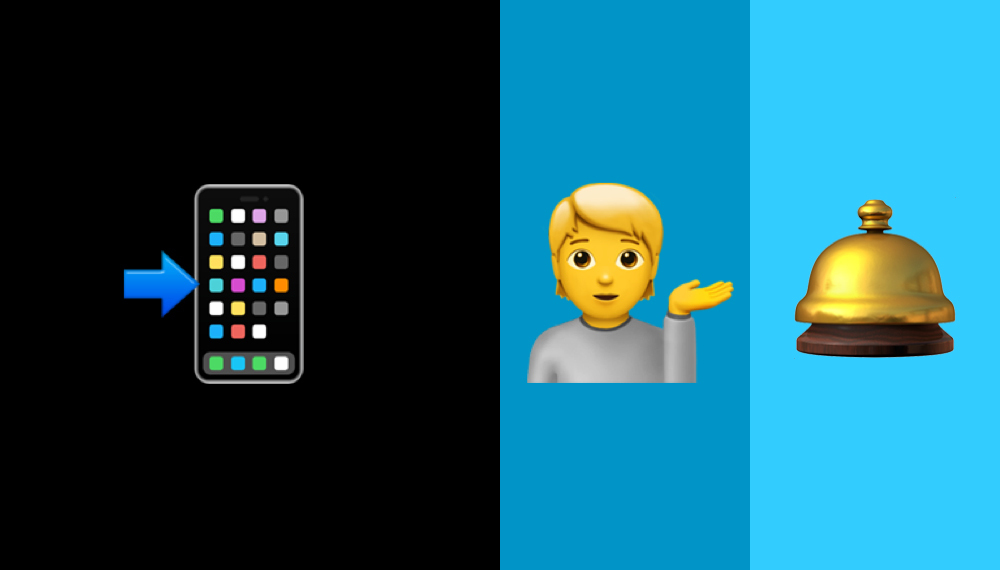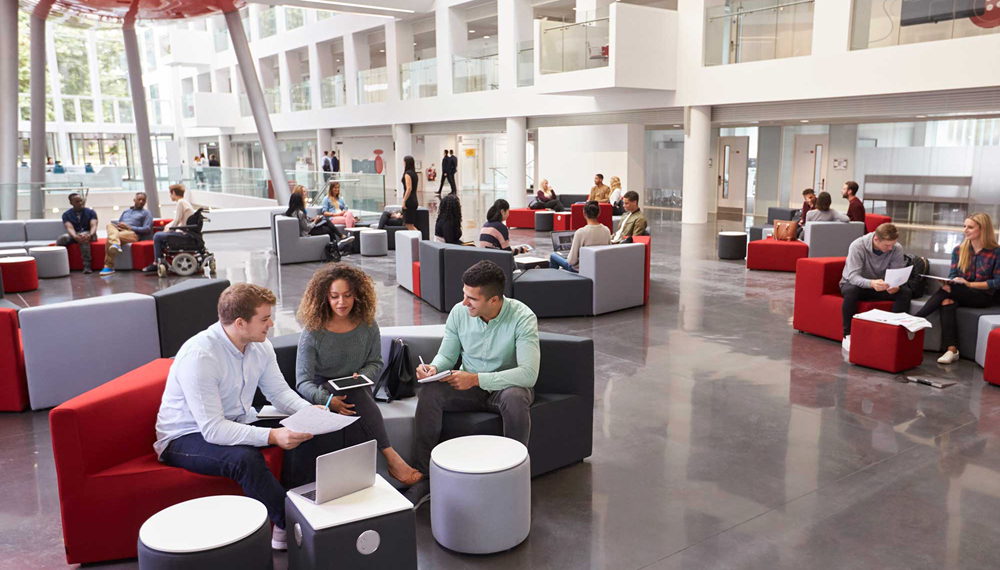
TEN Takeaways from Dave Cairns, SVP at CBRE and Founder of CBRE Forward
ICYMI: HILO’s David Abrams hosted Dave Cairns, SVP at CBRE and Founder of CBRE Forward to talk about the importance of uniquely tailored Tenant Experience. Here are some of our takeaways:
Lean into your strengths
When David asked Dave about his past as a professional poker player, Dave shared how the world of competitive poker isn’t too dissimilar from the world of commercial real estate. Dave’s family and friends told him “Maybe you would like this brokerage thing. It’s an, ‘eat what you kill’ kind of environment. It encompasses interpersonal skills with analytical skills. So, why don’t you give it a shot?”
View clip
Everything in life is about people
Dave is truly a people person. He reflects on his ability to read a room to find people he aligns well with, and “aggressively pursued building relationships with those people”. He shares with David that everything in life is about people: “if you asked me whether I would rather have like, you know, millions of dollars or a really, really deep network of people that could further my cause, I would pick the people every time.”
View clip
Put a human face and voice to a cause
David asks each guest on TEN what they would do with an additional $100,000 in budget, and every guest’s answer is unique. Dave’s response was looking at content as a key to success, citing that putting a human face and voice to a cause as a way to amplify its impact. He shares that a vlog might be a good use for the funds: “[I could] use it as a platform to educate both landlords and tenants on how they could use space more efficiently, how they can provide better end user experience, and how they can, hopefully, benefit the physical environment and the climate along the way.” We would subscribe to that vlog, Dave!
View clip
Buildings don’t do enough to serve end users
As the commercial real estate industry evolves through the COVID-19 pandemic, Dave shares that his core belief is that buildings don’t do enough to serve end users. Looking at the ways in which space is leased, and how misaligned it is with business objectives of organizations, big or small. Dave says, “small companies are not using Space as a Service because it doesn’t really live organically inside of their building. And most companies do want some kind of private, autonomous footprint.” With a nod to Caleb Parker (TEN Season 2, Episode 1 guest), Dave says that “what we would call a full stack commercial real estate product needs to live in the building. That’s really focused on the end user experience from the minute you walk in the door in the lobby, all the way through the activated amenities, event space, and then all the flex office products that you could consider buying.”
View clip
The industry needs to catch up
Dave comments on the emerging trend of hybrid or ‘flex’ as a response to organizations requiring their employees to be in the physical workspace less and less. Although quite prevalent in conversations happening in the PropTech industry, Dave shares that the CRE industry has been slow to adopt the idea of hybrid as viable. “They’re usually not very sophisticated about real estate, they don’t even know that something like that might be possible for them. So, I really think the industry has got to catch up.”
View clip
Never forget about the end user
As many organizations look at renegotiating leases for office space, Dave offers a take on the root cause of some of these contract changes. He shares that “if 80% of your staff don’t want to come back, you know, what does that say about your culture? What does that actually say about your workplace itself? Most companies know that they can never forget their most important customer ever again, which is the end users that use their space. And the same token is with the landlords as well. So, both have to do better.”
View clip
Buildings are about more than space
Dave quotes his favorite futurist George Pollack when he tells David that historically office buildings have benefitted from being essentially nondescript. He adds that “going forward they need to be branded, packaged, serviced, and delivered to the end user in new and exciting ways, and ultimately, more niche ways.”
View clip
Brand expression is about experience
David and Dave both agree that there is going to be an emergence of branding that commercial real estate operators will use in order to differentiate themselves. Looking at the success of Apple, David talks about how “in addition to building great products, the experience that you have in one of their stores is phenomenal. It changed retail. So, I think if buildings began to think about the experience, they’d offered even more so, as a way to also brand what they ultimately offer, beyond just the address of the building. I think there’s an incredible opportunity.”
View clip
Bring work to people, not to people to work
When asked about things he is working on, Dave says he’s a believer in bringing work to people, not people to work, in some contexts. While he acknowledges that there is a certain experience delivered in a headquarters location, Dave also shares that some of his customers in certain markets are deploying a work-from-anywhere strategy, where their employees can work from a variety of flex locations. “They’ve got a technology tool that will allow a corporate occupier to manage the flow of people and the demand, through their headquarters locations. But then they’re also supplementing that with the most complete access to a marketplace for flex office space out there.”
View clip
Reimagine the downtown core
The urban, downtown financial district is currently slated for office space only, and Dave suggests that there is some reimagining that could help. He explains that there is mixed use development happening, which opens the door for “this third space, this democratizing third spaces for people to go to.”
View clip
- April 14, 2021


